Many people struggle with just one condition. But, some face the challenge of having both a mental disorder and a substance use disorder. This complex situation is known as a dual diagnosis, or a co-occurring disorder.
The relationship between mental health and substance abuse is complex and often goes hand-in-hand. For instance, someone with depression might use drugs or alcohol to cope with negative feelings. This can provide temporary relief, but ultimately worsens the depression.
Family members can be a powerful source of strength and understanding. Skyline Recovery Center encourages family involvement by offering educational resources and family therapy.
These sessions help families:
A supportive family environment can be a cornerstone for lasting well-being.
Recovery isn’t always easy, and there will be ups and downs. Skyline Recovery Center understands the importance of having a wide support network beyond just family.
This network can include:
Skyline Recovery Center can help connect people with these resources in their community. This ensures they have a network to lean on during their recovery journey.
Dual diagnosis treatment doesn’t end when someone leaves the program. At Skyline Recovery Center, our goal is to ensure lasting recovery for each person who walks through our door.
We work with each client to develop a personalized aftercare plan that may include:
Skyline Recovery Center prioritizes family involvement. We also help build strong support networks and plan effective aftercare. This empowers people not only to overcome their dual diagnosis but to thrive in the years to come.
Treating people with a dual diagnosis requires a specialized approach. Skyline Recovery Center’s dual diagnosis treatment program understands this need and plans accordingly.
Our program tailors treatment plans to address both the mental health condition and the substance use disorder at the same time. This integrated approach increases the likelihood of long-term success in recovery.
By treating the root causes of both conditions, people can learn healthier ways to cope and achieve lasting wellness.
Our dual diagnosis treatment program is designed to provide comprehensive care that addresses both the mental health condition and the substance use disorder. Here’s how we do it:
We take pride in our team of professionals that specialize in treating mental health, addiction, and dual diagnosis treatment.
Our program is made up certified staff that includes:
This diverse team brings a wealth of knowledge and experience to the table. This ensures each client receives the most effective care possible.
The road to recovery begins with a thorough understanding of each person’s unique situation. At Skyline Recovery Center, we understand that a one-size-fits-all approach simply won’t work for treating dual diagnosis.
To create the most effective treatment plan possible, we begin with a comprehensive assessment.
Here’s what to can expect during this process:
Through this comprehensive approach, the assessment paints a clear picture of a person’s unique situation. This information allows our team to create a personalized treatment plan that addresses both the mental health condition and substance use disorder.
By understanding the root causes and specific needs, we can develop a roadmap that guides each person toward lasting recovery and improved overall well-being.
A hallmark of our approach is the creation of integrated treatment plans. These plans are not simply a collection of separate therapies but rather a cohesive strategy that tackles both the mental health condition and the substance use disorder at the same time.
This integrated approach ensures that all aspects of a person’s well-being are addressed, leading to a more holistic and sustainable recovery.
These treatment opportunities include:
CBT helps people identify and change negative thought patterns that contribute to both mental health symptoms and substance abuse behaviors. Therapists work with clients to develop coping mechanisms and build resilience.
DBT can be particularly helpful for those struggling with borderline personality disorder and substance abuse.
MAT combines medication to manage withdrawal symptoms and cravings with behavioral therapy for long-term success.
The medications used in MAT include:
MI is a collaborative approach that helps people explore their ambivalence about change and build motivation for lasting recovery. Therapists utilize motivational interviewing techniques to help people identify their own goals for recovery.
Our program offers a variety of options, including:
Skyline Recovery Center is committed not only to providing exceptional dual diagnosis treatment but also to advocating for increased access to these vital services.
Many people struggling with co-occurring mental health and substance use disorders face significant challenges in obtaining the specialized care they need.
The unfortunate reality is that there is a significant gap between the need for dual diagnosis treatment and the availability of specialized services. Many traditional treatment programs are not equipped to address the complexities of co-occurring disorders.
Skyline Recovery Center recognizes this gap and works to ensure people with dual diagnosis receive the comprehensive and integrated care they deserve.
Education is a powerful tool in addressing the issue of limited access to treatment. At Skyline Recovery Center we:
By increasing public understanding, SRC helps to remove barriers and encourage people to seek help.
Skyline Recovery Center understands that no single entity can solve the problem of limited access to dual diagnosis treatment on its own. We actively foster collaboration and advocacy efforts.
This includes partnering with:
By working together, these groups can:
Through collaborative efforts, SRC works to create a future where everyone has access to the specialized care they need to recover from a dual diagnosis and live a fulfilling life.
Skyline Recovery Center’s dual diagnosis treatment program offers a beacon of hope for people facing the complex challenges of co-occurring disorders.
Our program goes beyond treating just the symptoms: it fosters deep understanding of the root issues and empowers people to achieve lasting recovery.
We have explored the key aspects of SRC’s dual diagnosis treatment program, including our:
This comprehensive approach ensures that all aspects of a person’s well-being – mind, body, and spirit – are addressed on the path to recovery.
If you or someone you know is struggling with a dual diagnosis, Skyline Recovery Center can help. Our dedicated team is here to provide support and guidance on the journey toward lasting wellness.
Here, the sky’s the limit!



